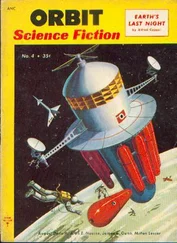That ought to get them, Arnie thought. He himself had emigrated due to his having only a B.A. Every door had been shut to him, and then he had come to Mars as nothing but a union plumber, and within a few short years, look at him. On Earth, a plumber with only a B.A. would be raking up dead locusts in Africa as part of a U.S. foreign aid work gang. In fact, his brother Phil was doing that right now; he had graduated from the University of California and had never had a chance to practice his profession, that of milk tester. In his class, over a hundred milk testers had been graduated, and for what? There were no opportunities on Earth. You have to come to Mars, Arnie said to himself. We can use you here. Look at the pokey cows on those dairy ranches outside of town. They could use some testing.
But the catch in the ad was simply that, once on Mars, the emigrant was guaranteed nothing, not even the certainty of being able to give up and go home; trips back were much more expensive, due to the inadequate field facilities. Certainly, he was guaranteed nothing in the way of employment. The fault lay with the big powers back Home, China and the U.S. and Russia and West Germany. Instead of properly backing the development of the planets, they had turned their attention to further exploration. Their time and brains and money were all committed to the sidereal projects, such as that frigging flight to Centaurus, which had already wasted billions of dollars and man-hours. Arnie Kott could not see the sidereal projects for beans. Who wanted to take a fouryear trip to another solar system which maybe wasn’t even there?
And yet at the same time Arnie feared a change in the attitude of the great terrestrial powers. Suppose one morning they woke up and took a new look at the colonies on Mars and Venus? Suppose they eyed the ramshackle developments there and decided something should be done about them? In other words, what became of Arnie Kott when the Great Powers came to their senses? It was a thought to ponder.
However, the Great Powers showed no symptoms of rationality. Their obsessive competitiveness still governed them; right this moment they were locking horns, two light years away, to Arnie’s relief.
Reading further in the paper, he came across a brief article having to do with a women’s organization in Berne, Switzerland, which had met to declare once more its anxiety about colonization.
COLONIAL SAFETY COMMITTEE ALARMED OVER CONDITIONS
OF MARS LANDING FIELDS
The ladies, in a petition presented to the Colonial Department of the UN, had expressed once more their conviction that the fields on Mars at which ships from Earth landed were too remote from habitation and from the water system. Passengers in some cases had been required to trek over a hundred miles of wasteland, and these included women and children and old people. The Colonial Safety Committee wanted the UN to pass a regulation compelling ships to land at fields within twenty-five miles of a major (named) canal.
Do-gooders, Arnie Kott thought as he read the article. Probably not one of them has ever been off Earth; they just know what somebody wrote home in a letter, some aunt retiring to Mars on a pension, living on free UN land and naturally griping. And of course they also depended on their member in residence on Mars, a certain Mrs. Anne Esterhazy; she circulated a mimeographed newsletter to other public-spirited ladies throughout the settlements. Arnie received and read her newsletter, The Auditor Speaks Back , a title at which he gagged. He gagged, too, at the one- and two-line squibs inserted between longer articles:
Pray for potable purification!! Contact colony charismatic
councilors and witness for water filtration we can be proud of!
He could hardly make out the meaning of some of the Auditor Speaks Back articles, they were phrased in such special jargon. But evidently the newsletter had attracted an audience of devoted women who grimly took each item to heart and acted out the deeds asked of them. Right now they were undoubtedly complaining, along with the Colonial Safety Committee back on Earth, about the hazardous distances separating most of the landing fields on Mars from water sources and human habitation. They were doing their part in one of the many great fights, and in this particular case, Arnie Kott had managed to gain control of his nausea. For of the twenty or so landing fields on Mars, only one lay within twenty-five miles of a major canal, and that was Samuel Gompers Field, which served his own settlement. If by some chance the pressure of the Colonial Safety Committee was effective, then all incoming passenger ships from Earth would have to land at Arnie Kott’s field, with the revenue received going to his settlement.
It was far from accidental that Mrs. Esterhazy and her newsletter and organization on Earth were advocating a cause which would be of economic value to Arnie. Anne Esterhazy was Arnie’s ex-wife. They were still good friends, and still owned jointly a number of economic ventures which they had founded or bought into during their marriage. On a number of levels they still worked together, even though on a strictly personal basis they had no common ground whatsoever. He found her aggressive, domineering, overly masculine, a tall and bony female with a long stride, wearing low-heeled shoes and a tweed coat and dark glasses, a huge leather purse slung from a strap over her shoulder. . . but she was shrewd and intelligent and a natural executive. As long as he did not have to see her outside of the business context, he could get along with her.
The fact that Anne Esterhazy had once been his wife and that they still had financial ties was not well known. When he wanted to get in touch with her he did not dictate a letter to one of the settlement’s stenographers; instead he used a little encoding dictation machine which he kept in his desk, sending the reel of tape over to her by special messenger. The messenger dropped off the tape at an art object shop which Anne owned over in the Israeli settlement, and her answer, if any, was deposited the same way at the office of a cement and gravel works on the Bernard Baruch Canal which belonged to Arnie’s brother-in-law, Ed Rockingham, his sister’s husband.
A year ago, when Ed Rockingham had built a house for himself and Patricia and their three children, he had acquired the unacquirable: his own canal. He had had it built, in open violation of the law, for his private use, and it drew water from the great common network. Even Arnie had been outraged. But there had been no prosecution, and today the canal, modestly named after Rockingham’s eldest child, carried water eighty miles out into the desert, so that Pat Rockingham could live in a lovely spot and have a lawn, a swimming pooi, and a fully irrigated flower garden. She grew especially large camellia bushes, which were the only ones that had survived the transplanting to Mars. All during the day, sprinklers revolved and sprayed her bushes, keeping them from drying up and dying.
Twelve huge camellia bushes seemed to Arnie Kott an ostentation. He did not get along well with his sister or Ed Rockingham. What had they come to Mars for? he asked himself. To live, at incredible expense and effort, as much as possible as they had back Home on Earth. To him it was absurd. Why not remain on Earth? Mars, for Arnie, was a new place, and it meant a new life, lived with a new style. He and the other settlers, both big and small, had made in their time on Mars countless minute adjustments in a process of adaptation through so many stages that they had in fact evolved; they were new creatures, now. Their children born on Mars started out like this, novel and peculiar, in some respects enigmatic to their parents. Two of his own boys-- his and Anne’s--now lived in a settlement camp at the outskirts of Lewistown. When he visited them he could not make them out; they looked toward him with bleak eyes, as if waiting for him to go away. As near as he could tell, the boys had no sense of humor. And yet they were sensitive; they could talk forever about animals and plants, the landscape itself. Both boys had pets, Martian critters that struck him as horrid: praying mantis types of bugs, as large as donkeys. The damn things were called boxers, because they were often seen propped up erect and squaring off at one another in a ritual battle which generally ended up with one killing and eating the other. Bert and Ned had gotten their pet boxers trained to do manual chores of a low caliber, and not to eat each other. And the things were their companions; children on Mars were lonely, partly because there were still so few of them and partly because . . . Arnie did not know. The children had a large-eyed, haunted look, as if they were starved for something as yet invisible. They tended to become reclusive, if given half a chance, wandering off to poke about in the wastelands. What they brought back was worthless, to themselves and to the settlements, a few bones or relics of the old nigger civilization, perhaps. When he flew by ‘copter, Arnie always spotted some isolated children, one here and another there, toiling away out in the desert, scratching at the rock and sand as if trying vaguely to pry up the surface of Mars and get underneath. . . .
Читать дальше









